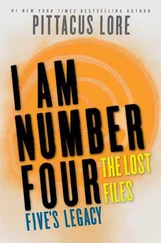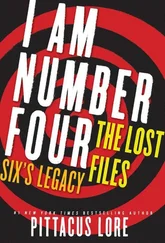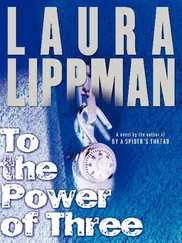“And the Bible isn’t a fairy tale?”
Her shoulders stiffen. She furrows her brows and flexes her jaw.
“Lorien isn’t a fairy tale,” I say before she can respond, and, using telekinesis, I lift a pillow from a nearby bed and spin it in the air. Adelina does something she’s never done before: she slaps me. Hard. I drop the pillow and press my hand to my stinging cheek with my mouth wide-open.
“Don’t you dare let them see you do that!” she says furiously.
“What I did right there, that’s not a fairy tale. I am not part of a fairy tale. You are my Cepan, and you are not part of a fairy tale.”
“Call it what you will,” she says.
“But haven’t you read the news? You know the boy in Ohio is one of us; you have to! He could be our only chance!”
“Our only chance at what?” she asks.
“A life.”
“And what do you call this?”
“Spending our days living the lies of an alien race is no life,” I say.
She shakes her head. “Give it up, Marina,” she says, and walks away. I have no choice but to follow.
Marina . The name sounds so normal now, so me . I don’t think twice when Adelina hisses the name at me or when one of the other girls in the orphanage yells it on the way out the school doors, waving my forgotten math book. But it hasn’t always been my name. Back when we were aimlessly looking for a warm meal or a bed, back before Spain and Santa Teresa, before Adelina was Adelina, I had been Genevieve. Adelina was Odette. Those were our French names.
“We should change our names with every new country,” Adelina had whispered when she was Signy and we were in Norway, where our ship landed after months at sea. She’d chosen Signy because it had been written on the woman’s shirt behind the counter.
“What should my name be?” I’d asked.
“Whatever you want it to be,” she’d said. We’d been at a cafe in the middle of a bleak village, enjoying the heat from the mug of hot chocolate we’d shared. Signy had stood and retrieved the weekend’s newspaper from a nearby table. On the front page was the most beautiful woman I had ever seen. Blond hair, high cheekbones, deep blue eyes. Her name was Birgitta. My name had become Birgitta.
Even when we were on a train and the countries zipped past the window like trees, we’d always change our names, if just for a few hours. Yes, it was to stay hidden from the Mogadorians or anyone else who might be following us, but it was also the one thing that raised our spirits among so much disappointment. I’d thought it was so much fun, I wish we’d traveled over Europe several times. In Poland I was Minka and she chose Zali. She was Fatima in Denmark; I was Yasmin. I had two names in Austria: Sophie and Astrid. She fell in love with Emmalina.
“Why Emmalina?” I’d asked.
She laughed. “I don’t know exactly. I guess I love that it’s almost two names in one. Either one is beautiful, but you smash them together and you get something extraordinary.”
In fact, I wonder now if that was the last time I heard her laugh. Or the last time we hugged or made proclamations about our destinies. I believe it was the last time I sensed she cared about being my Cepan or what happened to Lorien-what happened to me.
We arrive at Mass just before it begins. The only available seats are in the very last row, which is where I prefer to sit anyhow. Adelina shuffles to the front where the Sisters sit. Father Marco, the priest, begins with an opening prayer in his always-somber voice, and most of his words are muffled beyond recognition by the time they reach me. I like it this way, sitting through Mass with detached apathy. I try not to think about Adelina smacking me, filling my mind instead with what I will do when El Festin finally ends. None of the snow has melted, but I’m determined to make it to the cave anyway. I have something new to paint, and I want to finish the picture of John Smith that I started last week.
Mass drags on forever, or at least it feels that way, with rites, liturgies, communion, readings, prayers, rituals. When we reach the final prayer I’m exhausted and don’t even bother pretending to pray like I normally do, and instead sit there with my head lifted and eyes open, scanning the backs of the heads of those in attendance. Almost all of them are familiar. One man sleeps upright in his pew, arms crossed and chin touching his chest. I watch him until something in his dream startles him awake with a grunt. Several heads turn his way as he gathers his bearings. I can’t help but smile; and as I look away, my eyes find Sister Dora scowling at me. I drop my head, close my eyes, and feign prayer, mouthing the words that Father Marco recites up front, but I know I’ve been caught. It’s what Sister Dora thrives on. She goes out of her way to catch us in the act of doing something we shouldn’t.
Prayer concludes with the sign of the cross, finally bringing an end to Mass. I’m up out of my seat before anyone else, and I hurry from the nave to the kitchen. Sister Dora may be the largest among all the Sisters, but she shows surprising agility when it’s needed, and I don’t want to give her the chance to catch me. If she doesn’t, I might escape punishment. And I do, because when she enters the cafeteria five minutes later as I’m peeling potatoes beside a gangly fourteen-year-old named Paola and her twelve-year-old sister, Lucia, she only glares at me.
“What’s up with her?” Paola asks.
“She caught me smiling during Mass.”
“Good thing you weren’t paddled,” Lucia says out of the corner of her mouth.
I nod and go back to what I’m doing. As fleeting as they are, it’s these small moments that bring us girls together, the fact that we share a common enemy. When I was younger, I thought commonalities like this, and of being orphaned and living under this same tyrannical roof, would unite us all as immediate and lifelong friends. But really it only worked to further divide us, creating small factions within our already small group-the pretty girls huddling together (La Gorda excepted, but still a part of their crowd), the smart girls, the athletic ones, the young ones-until I was left all alone.
A half hour later when everything’s ready, we carry the food from the kitchen to the serving line. The crowd of waiting people clap. At the back of the line I see my favorite person in all of Santa Teresa: Hector Ricardo. His clothes are dirty and wrinkled, and his hair is tousled. He has bloodshot eyes, an almost scarlet complexion to his face and cheeks. Even from as far away as I am I notice he has a slight shake in each hand, as he always does on Sundays-the only day in the week he swears off drinking. He looks especially rough today, though when he finally approaches, he holds his tray out and fixes on his face the most optimistic smile he can muster.
“And how are you, my dear Queen of the sea?” he asks.
I curtsy in return. “I’m doing well, Hector. And you?”
He shrugs, then says, “Life is but a fine wine, to be sipped and savored.”
I laugh. Hector always has some old adage to share.
I first met Hector when I was thirteen. He had been sitting outside the lone cafe on Calle Principal drinking a bottle of wine by himself. It was midafternoon, and I had been on my way home from school. Our eyes met as I passed.
“Marina, as of the sea,” he had said, and I’d found it odd that he knew my name, though I shouldn’t have since I’d seen him every week at the church pretty much since the day I’d arrived. “Come keep a drunk man company a few minutes.”
I did. I’m not sure why. Maybe because there’s something entirely agreeable about Hector. He makes me feel relaxed, and doesn’t pretend to be somebody he isn’t like so many other people do. He exudes the attitude of “This is who I am; take it or leave it.”
Читать дальше












